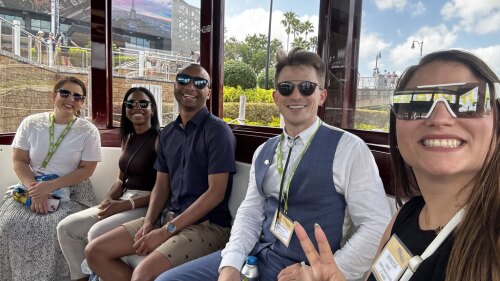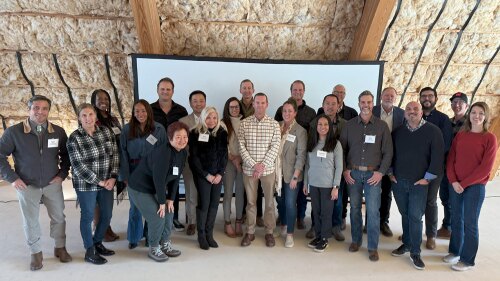Nashville is one of several 18-hour cities across the United States that offer an appealing mix of urban amenities, walkable downtowns, and affordability to consumers. The city made the top-ten list of markets to watch in ULI’s Emerging Trends in Real Estate 2016® and was praised in the report for its strong anchor institutions and quality of life.
Nashville’s population is growing—by 30,000 residents per year since 2010—but many feel the city’s transportation infrastructure is not prepared to offer mobility options beyond the personal vehicle. Bike paths, pedestrian-oriented streets, and ride- and bike-sharing services are now increasingly viewed as “must-haves” by people across generations and incomes.
Last year, Nashville’s newly elected mayor, Megan Barry, decided to prioritize the expansion of people-oriented mobility options and infrastructure as part of her first-term agenda. She tapped the private sector expertise of ULI Nashville members as well as that of urbanist and former ULI visiting fellow Gabe Klein to help accomplish her goal.
The result is Gear Up 2020: Rapid Goal-Setting for a 21st-Century Nashville, a set of 33 short-term goals that could transform Nashville from an automobile-oriented city to a truly multimodal one. More than 50 ULI members offered their expertise to inform the report’s recommendations.
“The mayor’s office sought a more entrepreneurial perspective to solving some of the mobility and equity challenges Nashville faces today,” said Kim Hawkins, a ULI Nashville member and chair of the Gear Up 2020 committee. “They wanted to know what real-world infrastructure ideas the private development community would actually support. Mayor Barry’s office wanted to be nimble and fast-acting, and they thought they could be nimbler by talking to ULI Nashville’s membership.”
Mayor Barry was eager to review Gear Up’s recommendations and even moved to implement a few of them before the report’s release in July, said Hawkins, founding principal of Hawkins Partners Inc.
For example, Mayor Barry amended an executive order on complete streets to include language prioritizing zero pedestrian fatalities, sustainability, and street design that accommodates all users—language from the report. In addition, Gear Up is informing a master-planning process for parks, greenways, and bike/pedestrian paths that is underway, according to Hawkins.
“Gabe and the ULI Nashville member-committee have helped set the stage for Mayor Barry’s first-term agenda around Nashville’s public space, infrastructure, and mobility systems,” said Mark Sturtevant, the city’s director of infrastructure. “There are now some outstanding ideas in Gear Up for key decision-makers to dig into and learn more. We’re grateful for and excited about this thoughtful body of work, and we look forward to working with ULI Nashville’s membership.”
The idea is to offer “layers and layers of mobility options, and not to be prescriptive,” said Klein. Currently, less than 5 percent of commuters use public transit in Nashville. A proposal to build a bus rapid transit system failed last year, yet ride-sharing services like Lyft and Uber are surging in popularity. Gear-Up recommends dramatically scaling up Nashville B-Cycle, the city’s bike-sharing service.
The report also recommends specific steps for local government to be more innovative and enterprising through partnerships with businesses and nonprofit organizations. Social equity and sustainability are other themes that run throughout the report, with goals focused on low-impact development, conversion of excess parking facilities into affordable housing and open space, and streets and public spaces that put pedestrians first.
By far, the most game-changing idea in Gear Up is that the government of the Nashville metropolitan area should establish its own department of transportation. At present, the department of public works controls the decision making around transportation, which means the planning is focused more on day-to-day operations and the maintenance of roads, rather than big-picture thinking about equity and mobility, Klein said.
Setting up a new transportation department is a “big undertaking, but could be critical in accomplishing what Mayor Barry wants to do,” he said. “If you have a department of public works that is focused on operations and maintenance, that can actually deter innovation. Establishing a separate transportation department will enable her to carry out several of the other ideas in the report.”
To learn more about ULI Nashville’s Gear Up 2020 initiative, go to: http://nashville.uli.org/infrastructure/gear-up-2020/.





